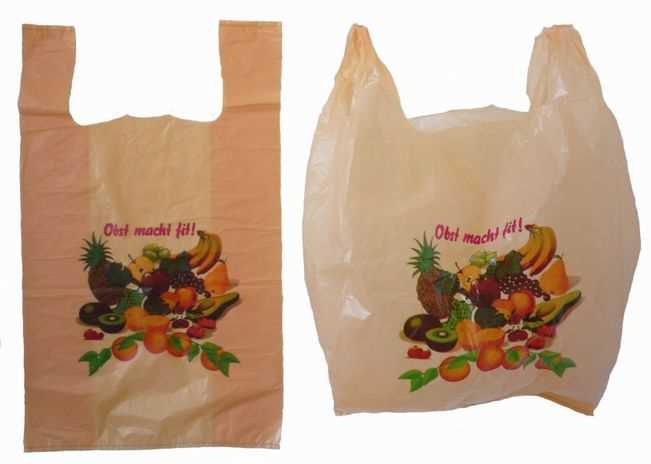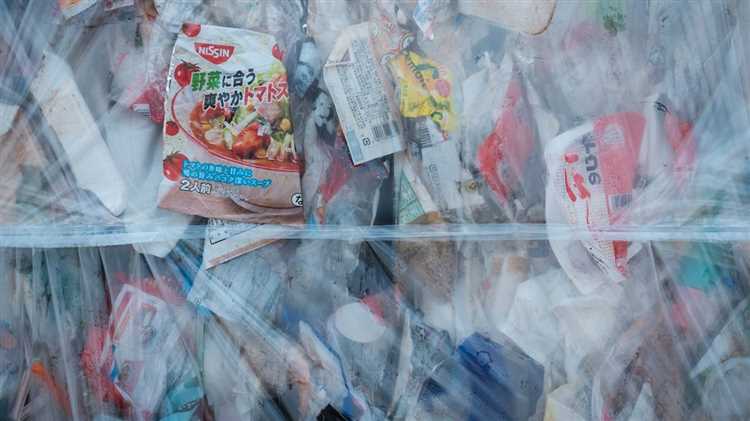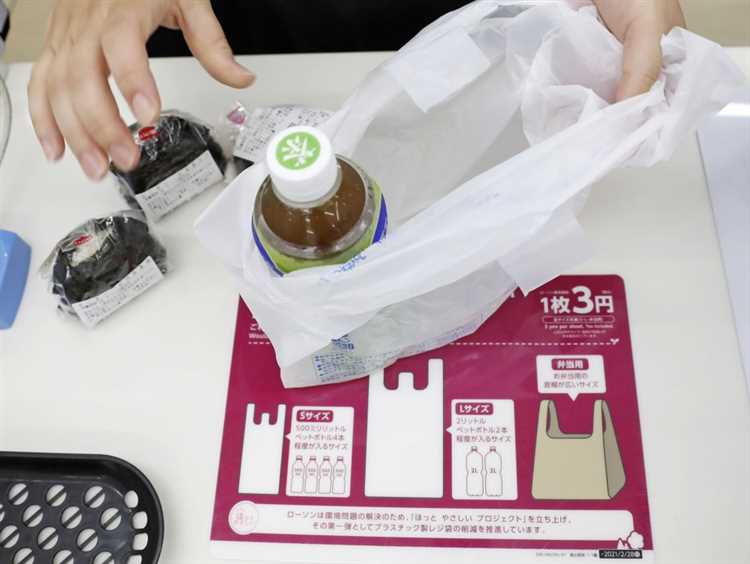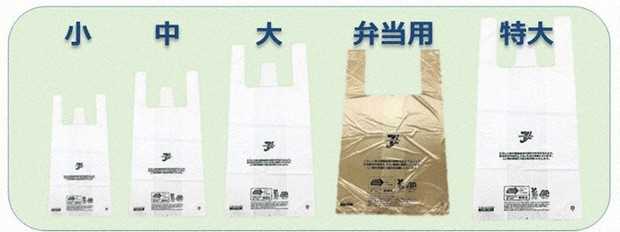Japan is known for its efficiency and attention to detail, but when it comes to environmental issues, the country has faced some criticism in recent years. One particular issue that has raised concerns is the use of plastic bags. Plastic bags have long been a staple in many countries, but their impact on the environment has become a pressing issue. In response to this, many countries have implemented measures to reduce their usage, such as implementing plastic bag taxes or banning them altogether. But what about Japan?
In Japan, the use of plastic bags is still quite common. Walk into any convenience store or supermarket, and you will likely be offered a plastic bag without even having to ask for one. In fact, it is often considered a courtesy to provide customers with a bag, as it is seen as a way of showing respect and ensuring their purchases are safely transported. This cultural norm, combined with the convenience of plastic bags, has made it challenging for the country to reduce their usage.
However, there have been efforts in recent years to address this issue. Some supermarkets and stores have started to charge customers for plastic bags, with the hope of encouraging people to bring their own reusable bags. Additionally, there has been a growing awareness among the younger generation about the environmental impact of plastic bags, leading to increased support for alternative options. These changes, while slow, are a step in the right direction towards reducing plastic bag usage in Japan.
- Environmental Impact of Plastic Bags
- 1. Pollution and Wildlife Harm
- 2. Resource Depletion
- 3. Landfill Accumulation
- History of Plastic Bag Usage in Japan
- Legislation on Plastic Bag Use
- Alternative Solutions to Plastic Bags
- Question-answer:
- Are plastic bags still used in Japan?
- Why are plastic bags still so popular in Japan?
- What is the government doing to reduce plastic bag use in Japan?
- Do Japanese people use reusable bags?
- What are the environmental impacts of plastic bag use in Japan?
- Are plastic bags still widely used in Japan?
Environmental Impact of Plastic Bags

Plastic bags have become a significant environmental issue worldwide, including in Japan. These lightweight bags are commonly used for shopping and packaging, resulting in a large amount of waste that ends up in landfills or enters the environment.
1. Pollution and Wildlife Harm
Plastic bags take hundreds of years to decompose, and during this time, they can cause pollution and harm to wildlife. When plastic bags are not disposed of properly, they can be carried by the wind and water, ending up in rivers, oceans, and forests. Marine animals, such as sea turtles and birds, mistake plastic bags for food, which can lead to injuries and even death.
2. Resource Depletion

The production of plastic bags requires significant amounts of fossil fuels, such as oil and gas. The extraction and processing of these resources contribute to air and water pollution, as well as greenhouse gas emissions. Additionally, the manufacturing of plastic bags consumes energy and generates waste, further exacerbating environmental issues.
Furthermore, the limited availability of fossil fuels means that using them for the production of single-use plastic bags is not sustainable in the long run. It is essential to find alternative materials or reduce the use of plastic bags altogether to preserve these valuable resources.
3. Landfill Accumulation

Plastic bags are not easily biodegradable, and as a result, they can accumulate in landfills for years. This leads to overcrowded landfills and a limited capacity to handle waste disposal. Landfill sites also contribute to soil and water contamination, impacting the overall ecosystem.
Efforts have been made by the Japanese government and various businesses to address the environmental impact of plastic bags. Measures such as charging for plastic bags and promoting reusable bags have been implemented to reduce their usage. However, there is still a long way to go in finding sustainable alternatives and raising awareness among consumers about the importance of choosing eco-friendly options.
Overall, the environmental impact of plastic bags in Japan and globally is significant. It is crucial for individuals, businesses, and governments to work together to find solutions that minimize the use of plastic bags and promote a more sustainable future.
History of Plastic Bag Usage in Japan
Plastic bags have become a common sight in Japan in recent decades, but this was not always the case. The use of plastic bags started gaining popularity in the 1960s as a convenient and cost-effective way to carry groceries and goods.
Before plastic bags, Japanese consumers relied on traditional paper and cloth bags. However, with the rise of the convenience culture and growing demand for affordable packaging, plastic bags quickly became the preferred choice for both businesses and consumers.
In the 1980s, Japan experienced a significant boom in plastic bag usage, driven by advances in manufacturing technologies and a strong economy. Plastic bags were not only used for carrying groceries, but also for packaging and storing various household items and personal belongings.
| Year | Significant Developments |
|---|---|
| 1960s | The popularity of plastic bags started to rise as a convenient way to carry groceries and goods. |
| 1980s | Plastic bag usage boomed with advancements in manufacturing technologies and a strong economy. |
| 1990s | Environmental concerns about plastic waste began to emerge, leading to increased efforts for recycling and reducing plastic bag usage. |
| 2000s | The government and businesses implemented regulations and initiatives to reduce plastic bag consumption and promote eco-friendly alternatives. |
In the 1990s, environmental concerns about plastic waste started to emerge, leading to increased efforts for recycling and reducing plastic bag usage. Concerns about the impact of plastic bags on marine life and the environment became more pronounced.
In response to these concerns, the Japanese government and businesses began implementing regulations and initiatives to reduce plastic bag consumption and promote eco-friendly alternatives. This included encouraging the use of reusable bags, promoting the recycling of plastic bags, and introducing fees for single-use plastic bags in some areas.
Overall, while plastic bags have been commonly used in Japan for several decades, there has been a growing awareness and push for more sustainable practices in recent years. The history of plastic bag usage in Japan reflects the broader global shift towards reducing plastic waste and promoting environmentally-friendly alternatives.
Legislation on Plastic Bag Use

Japan has implemented several measures to reduce plastic bag usage and promote sustainable alternatives. In 2007, the country introduced the Plastic Shopping Bag Reduction and Recycling Promotion Act, which aimed to decrease the consumption of plastic bags by retailers and encourage recycling.
Under this law, large retailers, including supermarkets and convenience stores, were required to charge customers for plastic bags. The introduction of a fee aimed to discourage the excessive use of single-use bags and promote the use of reusable alternatives. Many retailers offered incentives to customers who brought their own bags, such as discounts or loyalty points.
In addition to the usage fee, the law also required retailers to label their plastic bags with information about recycling and disposal methods. This was a significant step towards raising awareness about the environmental impact of plastic bags and encouraging responsible waste management.
Furthermore, the Japanese government has actively promoted the use of eco-friendly bags and containers. Local municipalities have organized campaigns to encourage residents to switch to reusable bags and have provided subsidies to businesses to develop alternatives to plastic packaging.
As a result of these efforts, the use of plastic bags in Japan has significantly decreased over the years. Consumers are more conscious of their impact on the environment and have adapted to using reusable bags for their shopping. This legislation has played a crucial role in changing the mindset towards plastic bag usage and has contributed to the overall sustainability goals of the country.
Alternative Solutions to Plastic Bags

In Japan, where the use of plastic bags is common, there are also various alternatives being considered and implemented to reduce plastic waste. These alternative solutions not only help to minimize environmental impact but also promote sustainable practices.
One popular alternative is the use of reusable bags made from fabric or other eco-friendly materials. These bags can be used multiple times, reducing the need for single-use plastic bags. Many stores and supermarkets in Japan offer these reusable bags for sale, encouraging customers to bring their own bags when shopping.
Another alternative solution is the promotion of biodegradable bags. These bags are made from materials that can break down naturally over time, reducing their impact on the environment. However, it is important to note that the production of biodegradable bags still requires resources and energy, so it is essential to use them responsibly.
In addition to reusable and biodegradable bags, some stores in Japan are adopting a packaging-free approach. This involves selling items without excessive plastic packaging or using alternative packaging methods, such as paper or cardboard. By reducing packaging waste, these stores are contributing to a more sustainable shopping experience.
Furthermore, some initiatives in Japan focus on educating the public about the environmental impact of plastic bags and encouraging individuals to bring their own reusable bags. These initiatives aim to raise awareness and promote behavior change, ultimately reducing the reliance on single-use plastic bags.
| Alternative Solutions | Description |
|---|---|
| Reusable Bags | These bags can be used multiple times, reducing the need for single-use plastic bags. |
| Biodegradable Bags | Made from materials that can break down naturally over time, reducing their impact on the environment. |
| Packaging-Free Approach | Selling items without excessive plastic packaging or using alternative packaging methods. |
| Educational Initiatives | Raising awareness and promoting behavior change to reduce the reliance on single-use plastic bags. |
Overall, Japan is actively exploring alternative solutions to plastic bags in order to reduce plastic waste and promote sustainable practices. These efforts demonstrate a commitment to environmental conservation and a recognition of the importance of reducing plastic pollution.
Question-answer:
Are plastic bags still used in Japan?
Yes, plastic bags are still commonly used in Japan. Despite efforts to reduce plastic waste, they are a popular choice at supermarkets and convenience stores.
Why are plastic bags still so popular in Japan?
There are a few reasons why plastic bags are still popular in Japan. One reason is convenience – they are lightweight and easy to carry. Additionally, they are often provided for free at stores, making them a convenient option for shoppers.
What is the government doing to reduce plastic bag use in Japan?
The Japanese government has implemented several initiatives to reduce plastic bag use. For example, some cities have introduced plastic bag fees to discourage their use. Additionally, there is a growing trend among retailers to offer reusable bags as an alternative.
Do Japanese people use reusable bags?
Yes, reusable bags are becoming more popular in Japan. Many people now carry their own bags when shopping to reduce their reliance on plastic bags. Some retailers also offer incentives, such as discounts or loyalty points, for using reusable bags.
What are the environmental impacts of plastic bag use in Japan?
Plastic bag use in Japan has significant environmental impacts. They contribute to plastic waste, which can take hundreds of years to decompose. Plastic bags also pose a threat to marine life, as they can be mistaken for food and ingested. Efforts to reduce plastic bag use are important for protecting the environment.
Are plastic bags still widely used in Japan?
Yes, plastic bags are still commonly used in Japan, although there has been an ongoing effort to reduce their usage in recent years.